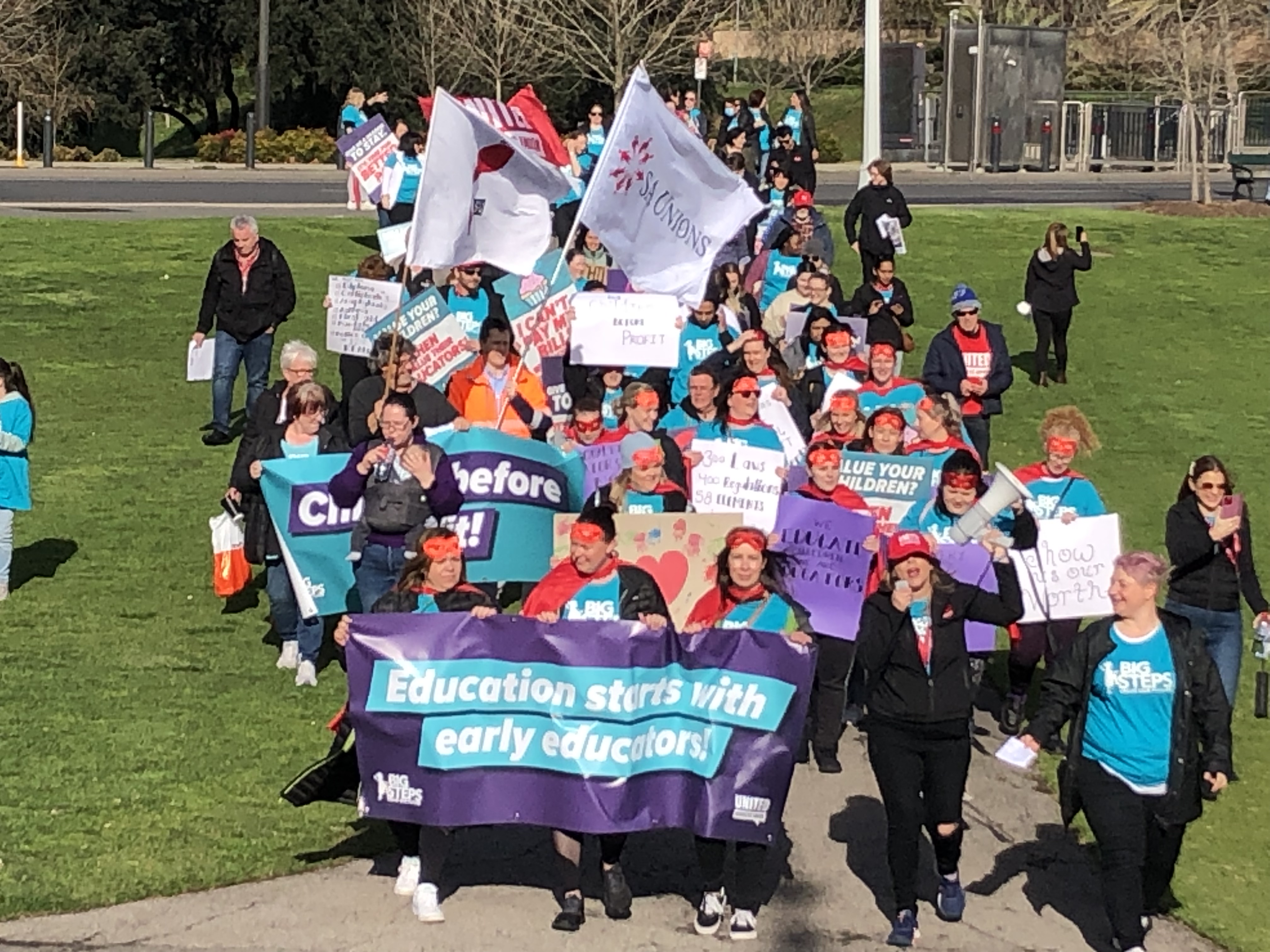
VANGUARD - Expressing the viewpoint of the Communist Party of Australia (Marxist-Leninist)
For National Independence and Socialism • www.cpaml.org
Above: Early Childhood Workers at a rally in 2022.
The dust has settled on the federal government's changes in the Fair Work Act in relation to enterprise bargaining. Workers and their Unions are looking to see where the changes can be used to advantage workers and what are the traps to look for.
The employers said the sky would fall in if the federal parliament approved widening the opportunities for multi-employer bargaining. So far that has not proven to be the case. One of the few sectors where the new multi-employer laws have been applied is the Early Childhood Education sector. The sector is now dominated by private equity companies and other private for profit operators while the wages paid to workers are highly dependent on federal government funding.
The Early Childhood Education workers (predominantly women) and their Union, United Workers Union, initiated multi-employer bargaining and utilised the new provision in the Fair Work Act regarding relevant funding third parties being involved . The third party involved was the federal government as it funded the wages in the sector. While the federal government said it as sympathetic towards the low pay and poor conditions of workers in the sector it dragged its heels on committing to fund wage increases.
Consequently the sector owners stalled the bargaining process.
The workers and their Union responded in February this year by giving notice of a strike on Internatinal Women's Day, 8 March.
About a week before the intended sector wide strike, the federal government announced it would fund a substantial increase in wages. Union members' Delegates agreed in consultation with members to postpone the strike action and possibly withdraw it altogether once they knew the exact amount that the federal government was going to agree to fund in the form of wage increases and over what time frame.
Delegates thought it best to keep the powder dry as they realised that their members may only get one clean shot of strike action as under the new laws the employers and fderal government had plenty of legal options to try and block on-going industrial action.
The threat of industrial action definitely moved the federal government's position on funding wage increases in the sector.
From the workers' perspective, their Union had utilized changes in the new laws to apply the "rising tide (of struggle) to lift all boats(multiple private for-profit Early Childhood Education Centre owners)".
On International Women's Day, thousands of women workers in the sector will be keeping a close eye on developments and waiting to see the dollar signs from the federal government.
In a completely different sector of the economy, the stevedoring and maritime sector, there is a history of protracted enterprise bargaining disputes between the Maritime Union members and a single employer. The new laws in relation to enterprise bargaining have strengthened the powers of the Fair Work Commission to arbitrate when an employer or group of employers argues that workers and their Union are being "unreasonable" if they have not accepted an employer offer after 9 months of bargaining. The new provisions come under an Intractable Bargaining section of the Act.
This new provision of the Act went through without headlines in the daily press and for good reason. The big corporations and no doubt both Labor and Liberal governments want to limit the power of the workers in key areas of the international economy such as shipping trade and turn around time of containers on and off ships.
So whatever the laws of capitalism regarding the class struggle within workplaces, workers and their Unions learn how to both use the laws to their advantage and how to avoid the worst aspect of the laws to further the interests of the working class as a whole to maximize the opportunity of a rising tide lifting many, if not all boats!